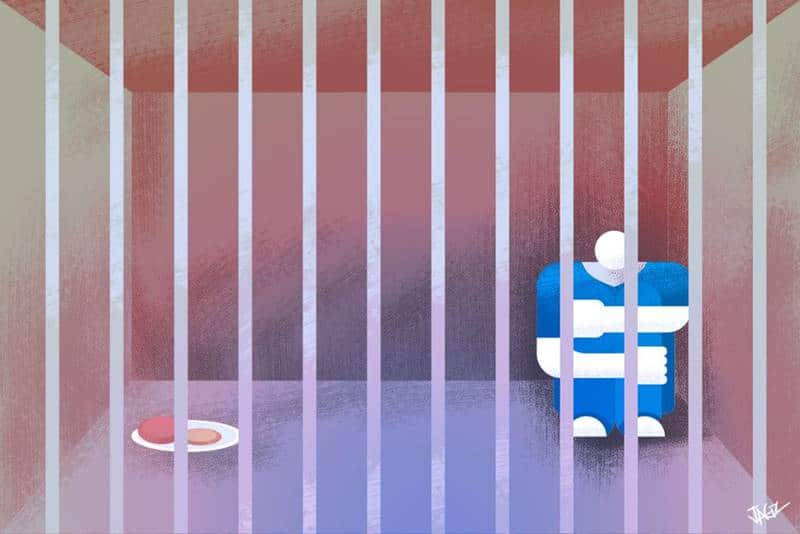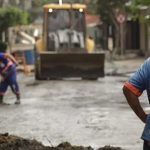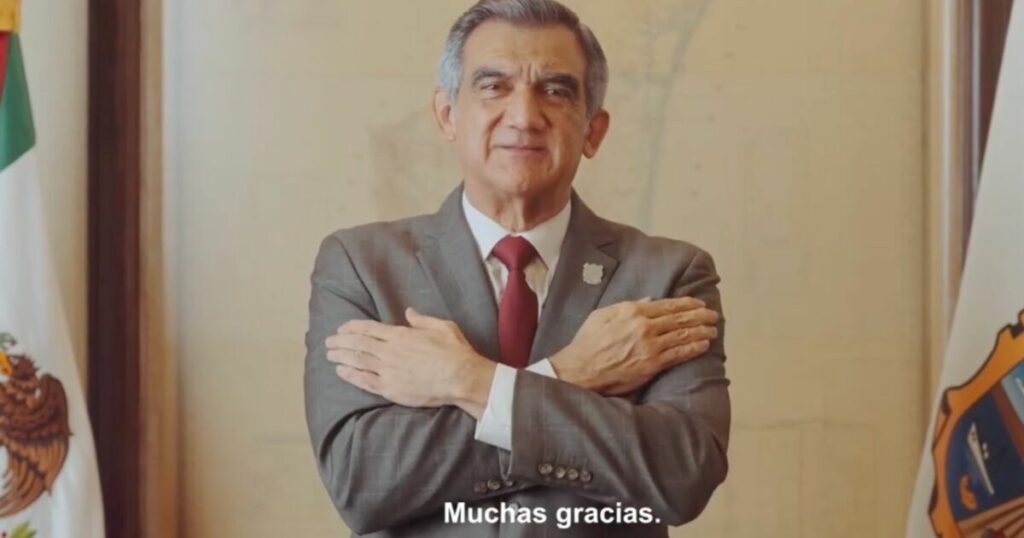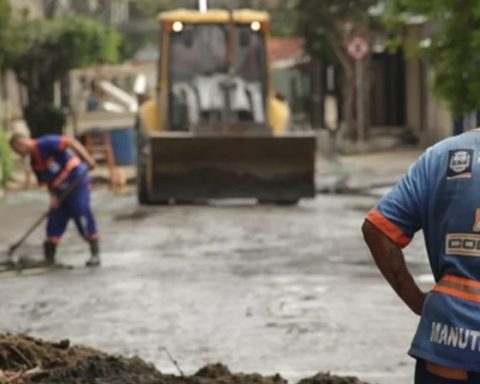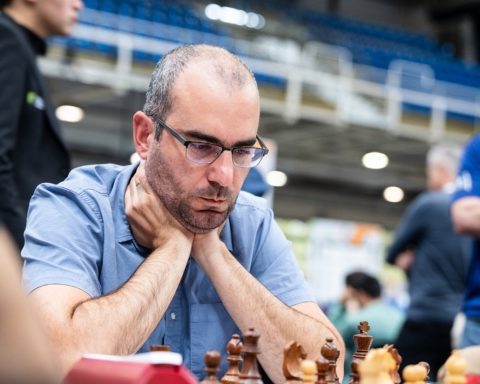The hunger strike held by at least 24 prisoners of conscience, -20 in the Jorge Navarro Penitentiary System, known as “La Modelo”, and four in El Chipote-, to demand an end to the inhuman prison conditions to which they are subjected; and in the case of the chronicler Miguel Mendoza and the lawyer Róger Reyes, to see their daughters after more than 15 months of confinement, exposes them to “devastating” consequences on their health. These may be worse in inmates with chronic illnesses or in the elderly, according to doctors consulted by CONFIDENCIAL.
The human being requires oxygen, water and food to live, if any is missing for a certain time, “It will inevitably lead that body to certain death”, explains the doctor and nutritionist, Montserrat Rodríguez. At the beginning of food deprivation, the person may experience low energy, more fatigue and little by little, the heart will beat slower, the blood pressure begins to drop and the organs, starting with the kidney, suffer, he said in an interview in the program Esta Noche, —which is broadcast through YouTube and Facebook Live, due to the censorship of the regime of Daniel Ortega and Rosario Murillo—.
The chronicler Mendoza has been on a hunger strike for eleven days, as an extreme measure, to demand that the Ortega regime authorize a visit to see his eight-year-old little girl, who has resented his absence for more than 15 months in prison. Lawyer Reyes began this form of protest, 10 days ago, to see his daughters under 10 years of age.
The 23th of September, the former guerrilla and political prisoner, Dora María Téllez, 66, She started a hunger strike to demand an end to solitary confinement and the torture to which she has been subjected. On the 24th of this month, the political prisoner and sociologist, Irving Larios, was the fourth political prisoner in El Chipote who declared himself in food deprivation.
Meanwhile, this Monday, September 26, CONFIDENTIAL confirmed that 20 political prisoners in La Modelo they are on a hunger strike to demand their freedom, and while that does not happen, that their prison conditions improve.
The relatives of prisoners of conscience are concerned about the consequences that the hunger strike may have on their health. A doctor who we will call “Luis” for security reasons, explained that an acute restriction of caloric intake can lead to “fatal consequences”. In conditions, such as those found in political prisoners, in a state of chronic food deprivation, they are subject to various imbalances in their organism.
“All metabolic functions are restricted and limited and that causes this to generate some complications at the cardiovascular level, at the circulatory level,” he said. There are people who can endure hunger strikes for ten days, but it is an estimate, he clarifies, that varies by factors such as physical complexion, nutritional status, the period of caloric restriction, among others.
So far it is unknown under what conditions, both the political prisoners who are in El Chipote and remain incommunicado with their families, and those of La Modelo are carrying out the hunger strike, which normally, points out doctor “Luis” requires medical assistance. to monitor the person and warn when health begins to be compromised.
The inmates of El Chipote have been subjected to a “hunger policy,” their relatives denounced after the tenth visit, by drastically reducing their food portions.
The relatives pointed out, in an interview with the Esta Semana program, that in a plate of food political prisoners could receive between 40 and 45 grains of beans, three grams of rice (100 grains), three centimeters of banana and two teaspoons of meat. The 27 prisoners of conscience who remain in El Chipote have drastically lost weight, which was evidenced at the end of August, when the Ortega regime presented them in some made-up informational hearings. They looked pale, malnourished and aged.
health damage
Nutritionist Rodríguez, based in Miami, United States, explains that the first thing that “suffers” in a person on a hunger strike is the neuroendocrine system. “Psychologically, emotionally, your body begins to send signals to produce a number of neurotransmitters and stress hormones. When that happens, the body goes into a full state of systemic inflammation. Our metabolism is going to start to slow down because there is no food, there is no fuel, that is a survival mechanism.”
He adds that since there is no food intake, the body looks for it from within. “It begins to produce it based on the body fat deposited and later, it eats everything, even the bones decalcify, the intestine loses its most superficial layers, which is where the immune system is, which is where the good bacteria are…” , he maintains.
With a depressed immune system, any inflammatory and autoimmune disease will “rise up”, for example diabetes or hormonal problems.
Mendoza is chronically ill, diabetic and has lost more than 30 pounds. Téllez is 66 years old and has been subjected to total confinement for more than a year; Reyes has suffered from stress, depression and has already been on a hunger strike to demand mental health care, and Larios is hypertensive and suffers from uric acid problems.
The doctor “Luis” maintains that the impact of the hunger strike on the conditions of prisoners of conscience in El Chipote causes a rapid progression of any complications, which are usually cardiovascular, renal, hepatic, subjecting the body to a level of wear that “can lead to death if one does not correct this situation,” he warns.
An SOS from prison
Allan Gómez, a member of the National Union of Nicaraguan Political Prisoners and Prisoners (UPPN) described the hunger strike that the political prisoners began in La Modelo as “a leap into the void”, without guarantees that their demands – the cessation of harassment and excessive control their relatives in the requisitions, as well as the improvement of their conditions in captivity-they are listened to. However, it is his last resort to demand the fulfillment of his human rights, he said in an interview on Esta Noche.
Gómez explains that a differentiated treatment persists between common criminals and political prisoners in La Modelo. His relatives have denounced on multiple occasions the violations of their rights, subjecting them to overcrowded maximum security cells and without sanitary conditions. Several have not had access to medical care and their visits have been blocked or rescheduled.
